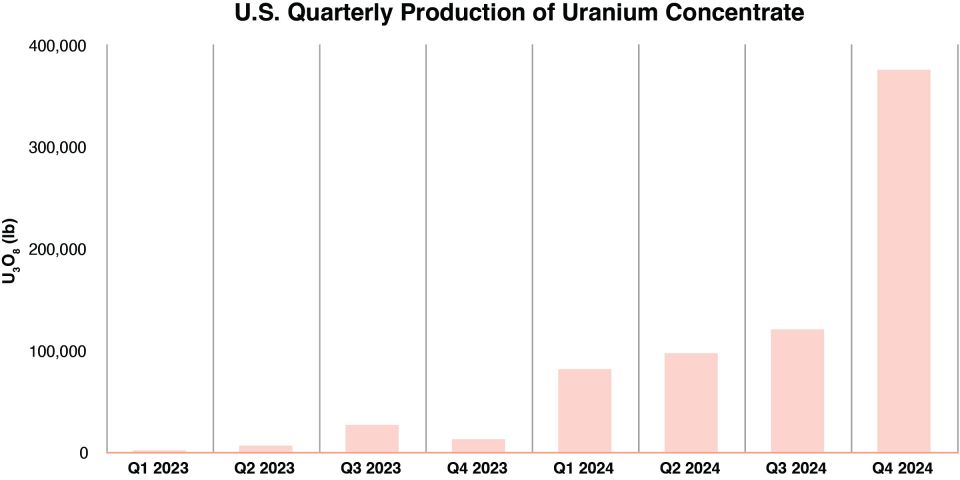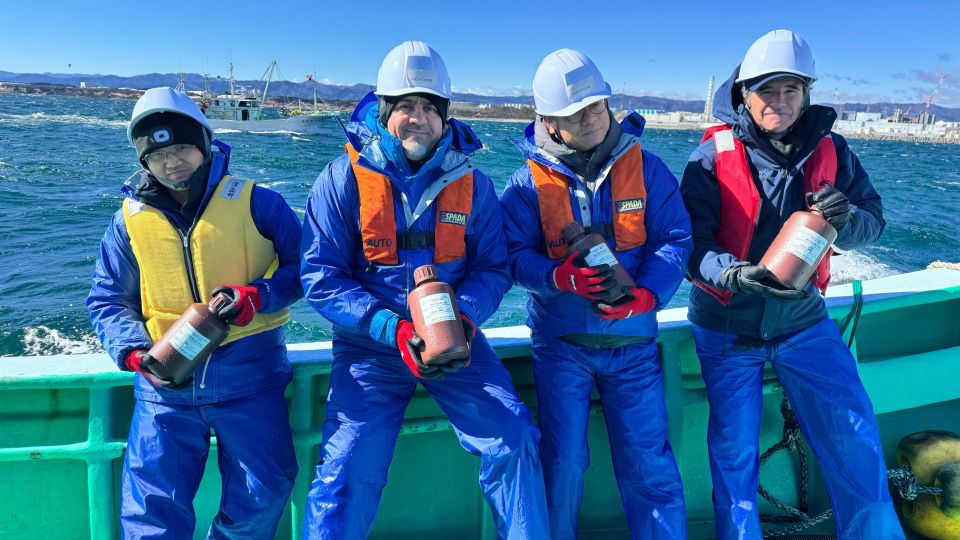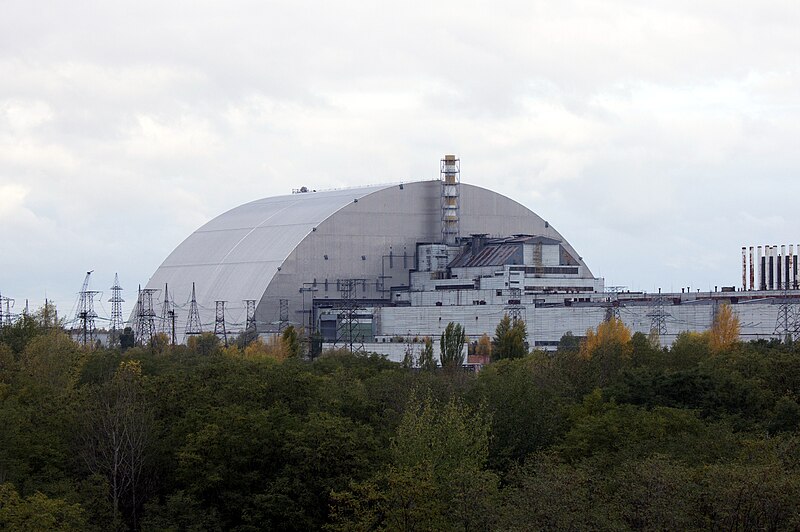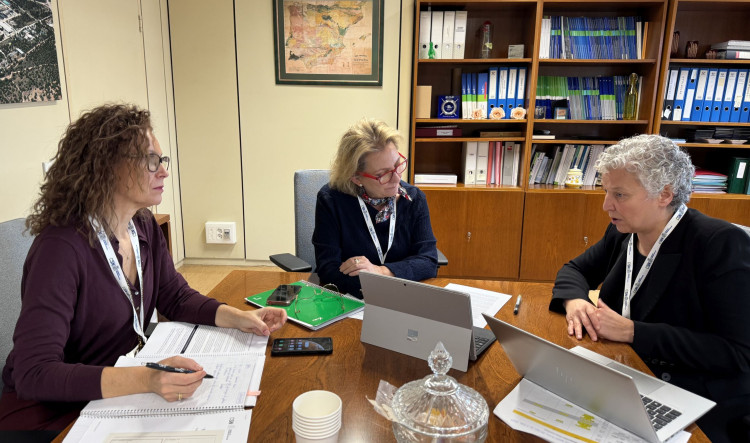Yet nuclear energy often takes a back seat to renewables like solar and wind in energy discussions. Unlike weather-dependent renewables, however, nuclear power provides consistent energy, making it essential for a balanced, reliable energy mix. While renewables are key to a sustainable future, nuclear energy is equally crucial for meeting the growing demand for clean, stable power.
As the world’s largest uranium producer, Kazatomprom is central to this energy shift, supplying about 20 percent of global uranium production. In 2023, the company generated $3.1 billion in revenue and $1.3 billion in net profit, highlighting strong market demand for nuclear fuel amid the push for energy resilience and climate stability.
A sustainable footprint
Unlike coal or natural gas, nuclear energy produces no direct carbon emissions during operation. As countries pursue net-zero goals, it provides reliable baseload energy and addresses energy security concerns amid volatile fossil fuel markets and geopolitical tensions.
Kazatomprom’s sustainability efforts go beyond uranium supply. The company’s decarbonization and carbon neutrality strategy focuses on minimizing environmental impacts through cleaner technologies and efficient processes. This includes recovering valuable byproducts like scandium, vanadium, and selenium from uranium production waste, which reduces resource wastage and supports clean-tech industries. With targets for cutting emissions, boosting energy efficiency, and driving low-carbon research, Kazatomprom is demonstrating how industrial leaders can align profitability with environmental responsibility and foster a sustainable global economy.
Innovation is key to addressing the challenges of the evolving energy landscape. At Kazatomprom, we have partnered with Siemens to establish a production facility in Kazakhstan for advanced industrial equipment, including electromagnetic flowmeters and pressure sensors. This project will strengthen local industrial capabilities and support the broader energy sector. Meanwhile, our research collaborations with international organizations aim to expand the applications of nuclear technology, including the production of medical radioisotopes from uranium byproducts. These initiatives illustrate how nuclear energy’s potential extends far beyond electricity generation.
Global collaboration
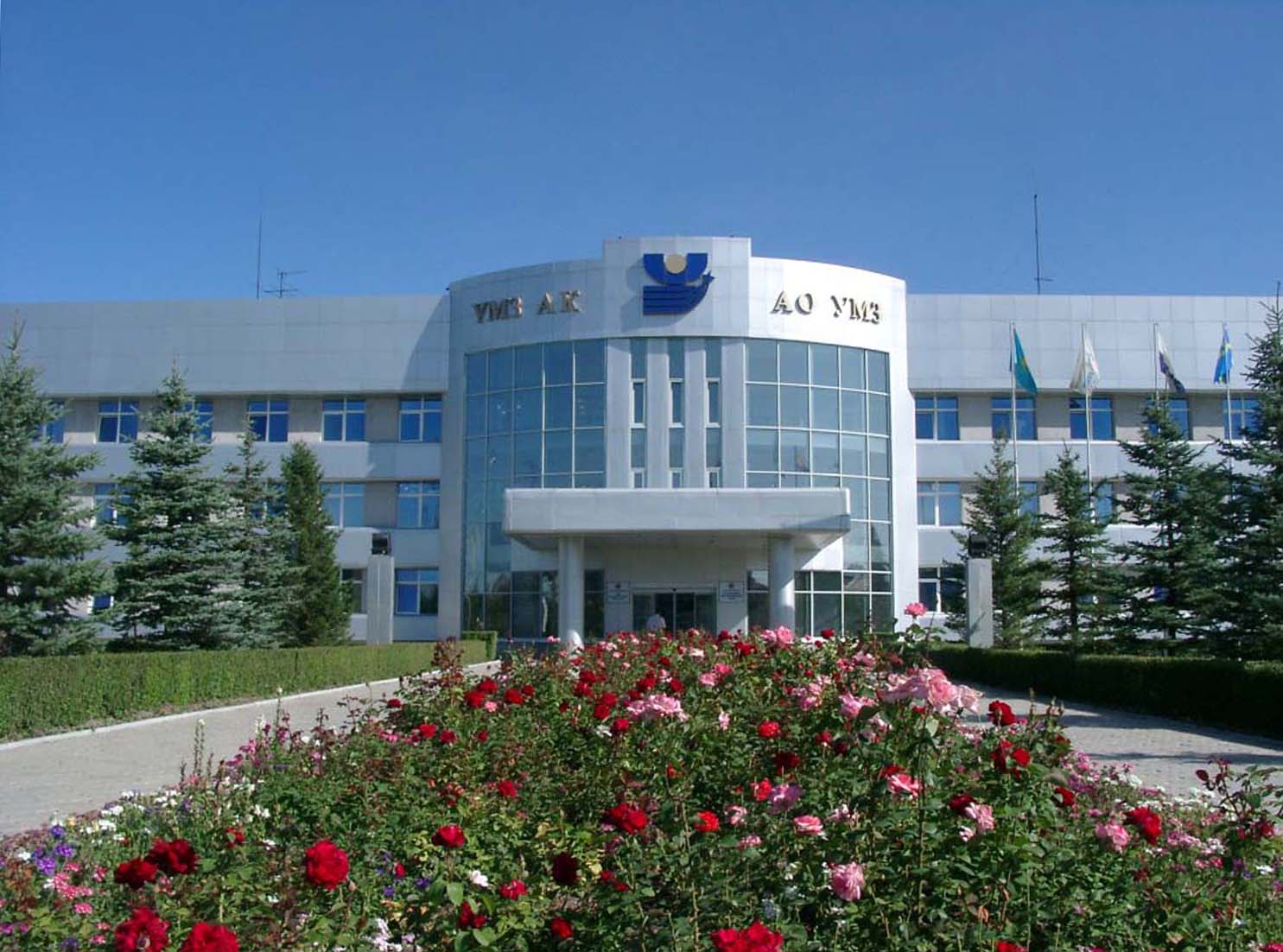
Kazatomprom’s Ulba Metallurgical Plant. (Photo: ulba.kz)
Kazatomprom’s Ulba Metallurgical Plant was selected by the International Atomic Energy Agency in 2017 to host the Low-Enriched Uranium Bank, ensuring a secure uranium supply for IAEA Member States that lack enrichment capabilities. In 2019, Kazatomprom completed the LEU Bank’s final delivery, reinforcing its trusted status in the peaceful use of nuclear energy.
Kazatomprom’s journey reflects Kazakhstan’s rise as a global energy leader. In 2024, the company secured new uranium exploration licenses, adding over 180,000 tons of potential resources. Investments in digital technologies also have boosted operational safety and efficiency. The eKAP app is used to automate pre-shift safety checks for more than 20,000 employees, reducing accidents and enhancing compliance. Advanced video analytics further ensure real-time safety monitoring, detecting hazards like missing personal protective equipment or perimeter breaches, setting industry-leading safety standards.
Equally important is Kazatomprom’s commitment to social responsibility, which aligns with global efforts to create inclusive and equitable development. By investing in education, youth development, and community infrastructure, we contribute to building the skilled workforce required to sustain not only our operations but also the broader energy industry. Programs like Murager, which provides grants to underserved students, and our partnerships with international institutions exemplify the role corporations can play in addressing global challenges such as access to education and social mobility.
A path forward
As the world tackles energy and climate challenges, nuclear energy’s role has never been more critical. Reliable, scalable, and essential for climate goals, its potential depends on sustained investment, innovation, and global cooperation.
Kazatomprom is ready to lead this transition by ensuring a stable nuclear fuel supply, driving technological advancements, and prioritizing sustainability. As countries consider nuclear energy for future energy needs, Kazatomprom stands prepared to support this shift. By providing reliable, low-carbon energy, we help power economies and advance global sustainability efforts. Nuclear energy isn’t just part of the solution—it’s central to it.
Meirzhan Yussupov is the chief executive officer of Kazatomprom.




